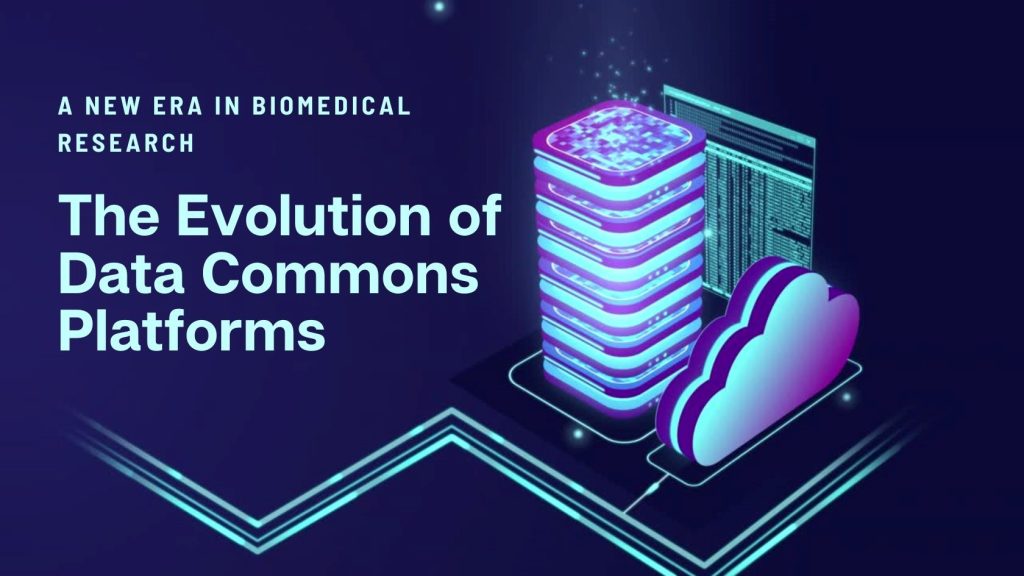In this fast-moving digital era, Santhosh Reddy Thuraga emphasizes how Data Commons Platforms are transforming biomedical data management by centralizing diverse datasets. These platforms streamline data access, foster cross-institutional collaboration, and enable more comprehensive research. With scalable architectures, robust security measures, and integration of emerging technologies like AI, they provide future-ready solutions to the complex challenges of modern medical research. As a result, these platforms are paving the way for significant breakthroughs in personalized medicine and healthcare innovation.
Centralized Data, Decentralized Impact
Data Commons Platforms are transforming biomedical data management by integrating diverse datasets—genomic, clinical, and environmental—into a centralized, cohesive environment. Unlike traditional, siloed repositories, these platforms provide researchers with efficient access to large datasets, fostering collaboration and enabling more holistic research approaches. By curating, standardizing, and enforcing interoperability across datasets, they enhance data quality and promote cross-institutional collaboration. This integration of various data types within a single system supports more comprehensive studies, leading to deeper insights into complex diseases and advancing personalized medicine.
Scalable Solutions for Growing Data
The rapid growth of biomedical data presents major challenges for traditional data management systems, but Data Commons Platforms are designed to scale effectively. They can handle the increasing data volumes generated by modern research while maintaining high standards of integrity and accessibility. With scalable data storage and computational power, these platforms evolve alongside research needs. Their flexible architecture accommodates various data formats and computational requirements, allowing researchers to process large genomic datasets or real-time clinical data without being limited by legacy systems.
Unlocking Collaborative Research
Collaboration is vital to scientific progress, and Data Commons Platforms are designed to enable global teamwork. By offering a shared environment for data storage and analysis, these platforms facilitate cross-institutional collaboration, allowing researchers from various regions and disciplines to combine their expertise and tackle complex biomedical challenges. Additionally, they provide access to analytical tools and methodologies, making these resources available to a broader range of researchers. This accessibility lowers barriers for smaller institutions and individual researchers, democratizing access to advanced research capabilities.
Addressing Ethical and Privacy Concerns
Ethical and privacy concerns are central to the development of Data Commons Platforms, which incorporate robust security measures to protect sensitive patient data. Advanced encryption, secure authentication, and data anonymization are among the key techniques used to safeguard information. In addition to these technical protections, the platforms comply with stringent regulatory standards such as HIPAA and GDPR, ensuring that patient rights are upheld and data is managed transparently and ethically throughout its lifecycle.
Future-Ready Innovation
The potential of Data Commons Platforms extends far beyond their current capabilities. Emerging technologies such as artificial intelligence (AI) and machine learning (ML) are poised to further enhance the functionality of these platforms. AI-driven analytics can help researchers identify patterns and correlations in vast datasets that would otherwise go unnoticed. Similarly, machine learning models can assist in predictive diagnostics and treatment recommendations, driving the future of personalized medicine.
Furthermore, blockchain technology is gaining traction as a solution for ensuring data integrity and traceability. By providing a transparent and immutable record of data transactions, blockchain can enhance trust and accountability within these platforms, making it easier to track data provenance and ensure compliance with regulatory standards.
Overcoming Challenges and Paving the Way Forward
While the benefits of Data Commons Platforms are clear, there are still challenges to overcome. Ensuring long-term sustainability is critical. Funding models need to be developed to support the continued growth and maintenance of these platforms. Public-private partnerships, tiered membership models, and grants for infrastructure development are all potential solutions.
Interoperability remains another challenge. Although these platforms are designed to integrate diverse datasets, ensuring seamless communication between different systems and platforms is an ongoing effort. Standardized APIs and data exchange protocols are essential for creating a truly interconnected research ecosystem.
In conclusion, as Santhosh Reddy Thuraga illustrates, Data Commons Platforms are revolutionizing biomedical research by providing scalable, secure, and collaborative environments for data management and analysis. By integrating advanced technologies and overcoming the challenges of privacy, interoperability, and funding, these platforms have the potential to drive future breakthroughs in precision medicine and personalized healthcare. The continued evolution of Data Commons Platforms will undoubtedly play a central role in shaping the future of medical research and innovation.

